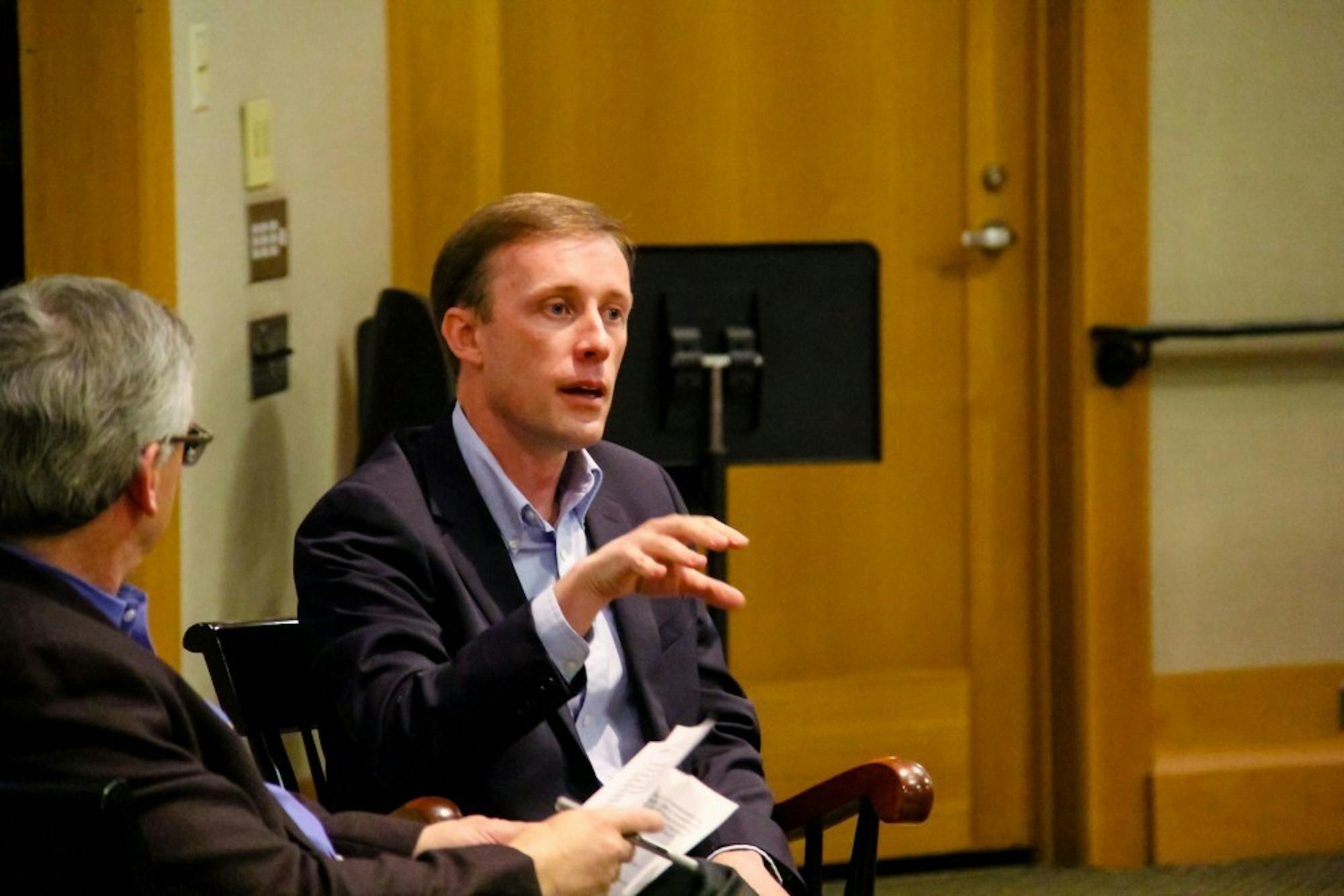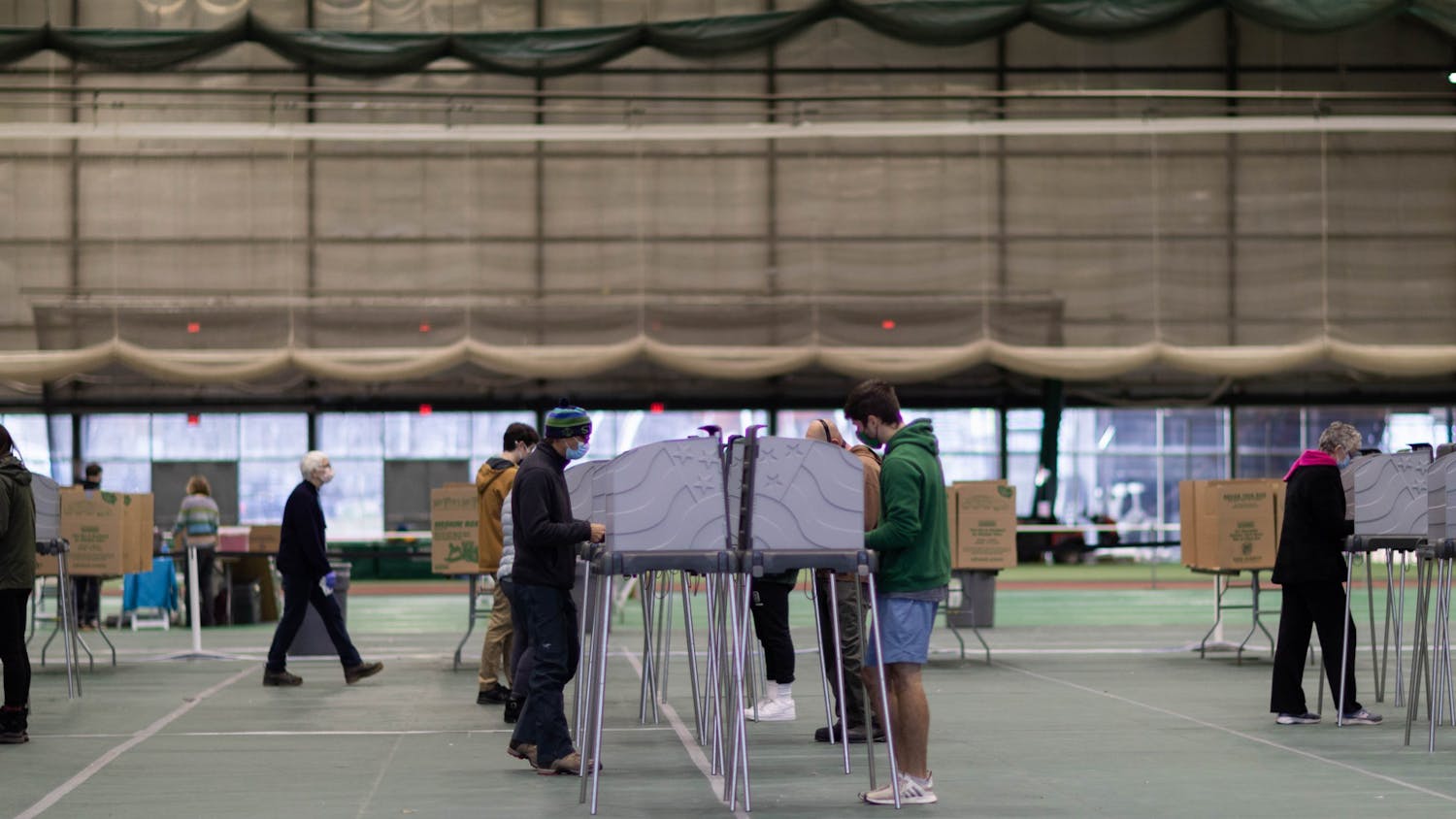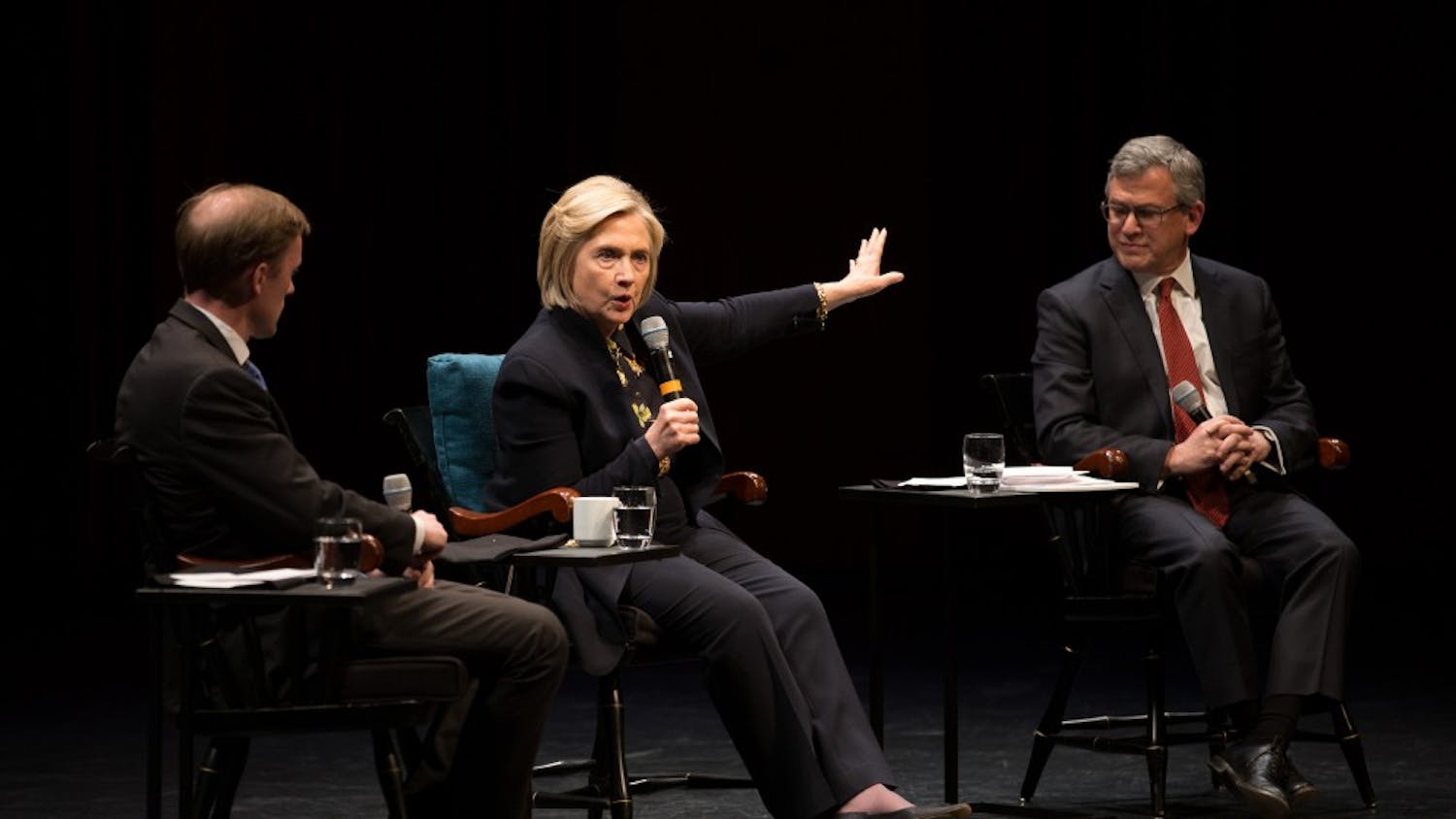President-elect Joe Biden announced on Monday that Jake Sullivan — a resident teaching fellow at Dartmouth from winter 2019 to spring 2020 — will serve as his national security adviser. At 44, Sullivan will be the youngest national security adviser in decades.
Before coming to Dartmouth, Sullivan was a top adviser in former President Barack Obama’s administration, serving as director of policy planning at the State Department under then-Secretary of State Hillary Clinton from 2011 to 2013. He later served as national security adviser to Biden during his second vice presidential term. Sullivan was a key player in the negotiation of the 2015 Iran nuclear deal, and he also advised Clinton on foreign policy during her 2016 presidential bid.
Sullivan first came to Dartmouth as a Montgomery Fellow in the winter of 2019, teaching GOVT 85.01, “Diplomacy” and staying in the Montgomery House on Occom Pond. Sullivan was also a Magro Family Distinguished Fellow in International Affairs at the Dickey Center for International Understanding for three terms.
This past spring, Sullivan taught GOVT 84.36, “The Future of the International Order,” alongside then-Dickey Center director Daniel Benjamin. Benjamin, who now serves as the president of the American Academy in Berlin, worked with Sullivan in the Obama administration and helped bring him to Dartmouth.
When he heard the news of Sullivan’s appointment as national security adviser, Benjamin said that he was “thrilled.”
“I was pleased for him,” Benjamin said. “But I was also pleased for the new administration and for the country, because I think he's such a huge talent.”
On foreign policy, Benjamin noted that he considers Sullivan to have a “deep understanding of the importance of [the United States’] alliances.”
“That is really vital at this particular point because our alliances are quite tattered, shall we say, after four years of Trump,” he added.
At Dartmouth, Sullivan’s real-world foreign policy experience gave faculty members insights that helped them in their academic work, Benjamin said, describing an “excellent back and forth” between Sullivan and professors in the government department.
Sullivan also participated in a series of public discussions during his time in Hanover, speaking on topics ranging from the Electoral College and the 2020 election to international challenges facing the U.S. in the 21st century. As part of a yearly lecture organized by the Dickey Center, he discussed foreign policy issues with Benjamin and Clinton, who visited campus in May 2019 on Sullivan’s invitation.
Assistant director of the Montgomery Fellows program Ellen Henderson noted that Sullivan engaged with an “amazing number” of students while at Dartmouth — meeting with more than 700 students at luncheons, individual meetings, lectures and other events. She noted, however, that the number he met with “is probably a lot bigger,” as her tally only includes those engaging with Montgomery Fellows programming.
“Once I gave him his schedule, if somebody wanted to do something, he would schedule them, too,” Henderson added.
According to Henderson, fellows in the Montgomery Fellows program do not always teach an undergraduate course. However, Sullivan chose to teach an undergraduate course as a Montgomery Fellow and continued to teach throughout his four terms at Dartmouth.
Pat Bazylczyk ’21, a government major who took GOVT 84.36 with Benjamin and Sullivan in the spring, said she found that the course offered an “unparalleled” perspective on international policy.
Throughout the course, which covered topics in international relations ranging from the rise of populism in Europe to counterterrorism efforts in the Middle East, Sullivan and Benjamin invited a handful of guest speakers to share perspectives on international issues, Bazylczyk said. Speakers included former director of the CIA John Brennan, as well as former State Department chief of staff and director of policy planning Jon Finer and Julie Smith, formerly a senior official at the Department of Defense and deputy national security adviser to Biden during his vice presidency.
Caterina Hyneman ’21, another student who took the spring seminar, said that these speakers offered new takes on questions about the future of the international order.
“The fact that Jake Sullivan had these connections, and they were willing to come speak with us, was incredible,” Hyneman said.
Bazylczyk added that these speakers provided new dimensions to issues the class was discussing.
“Having all of these speakers come in offered this policy perspective that you just can’t learn from reading a book or theorizing about things,” Bazylczyk said.
When the class discussed the Iran nuclear deal, Bazylczyk said that Sullivan also shared insights from his personal experience negotiating the deal.
“We talked about the [Iran deal] in our class and had a debate on it,” Bazylczyk said. “And he was able to give an actual perspective, from a negotiating stance.”
Hyneman added that, when students arrived to class for a discussion of the Iran deal, Benjamin simply told the class that if they had any questions, “the man who helped negotiate the Iran deal is right there.”
Sullivan did not respond to requests for comment by press time.





